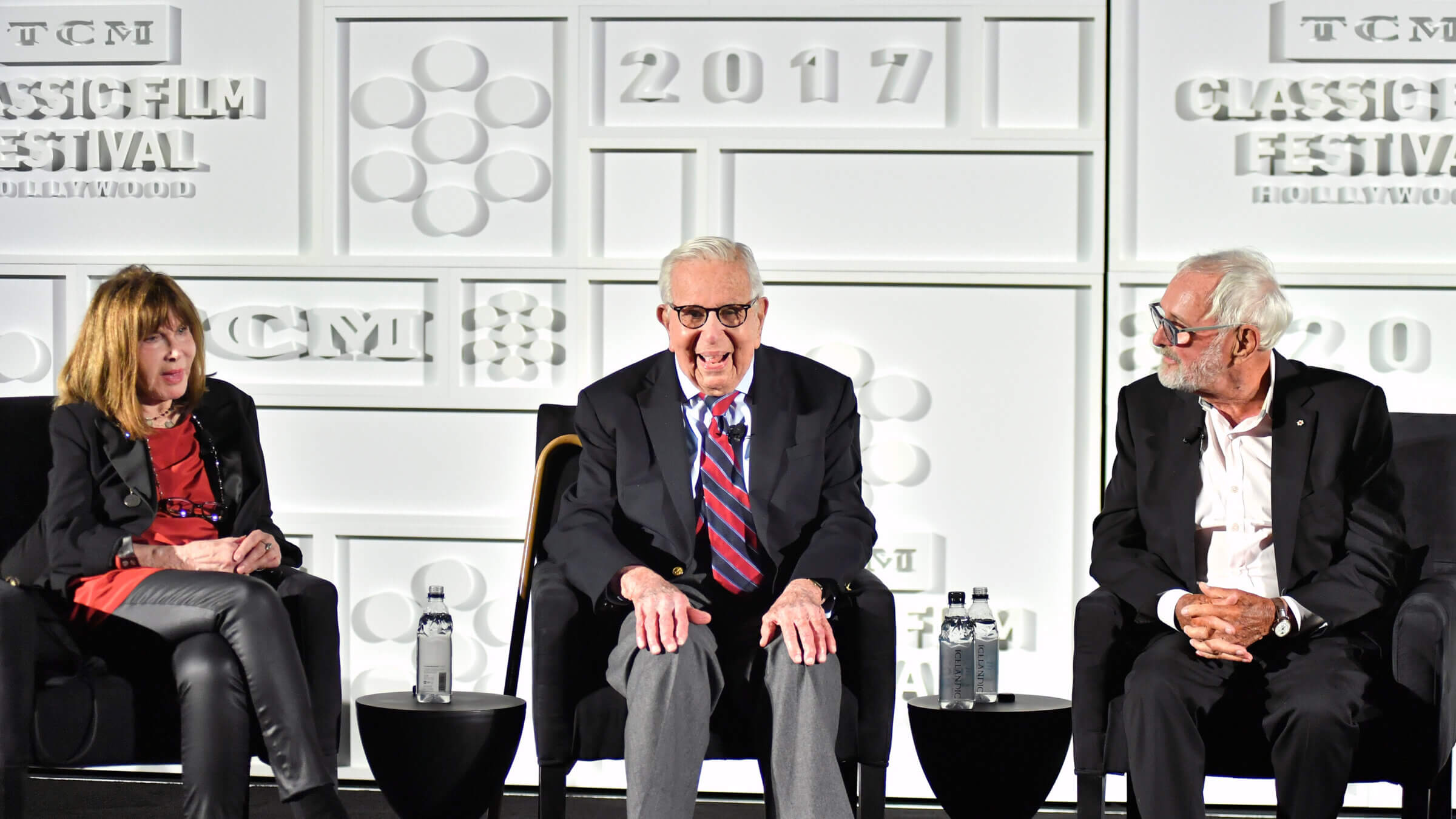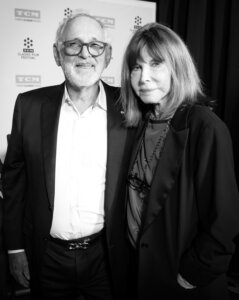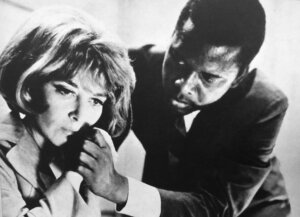How two Normans — Jewison and Lear — changed this Oscar-winning actress’ life
After spending 12 years on the blacklist, Lee Grant found her path back to the screen through collaborations with Jewison and Lear

Lee Grant, Walter Mirisch and Norman Jewison at the 50th anniversary screening of In the Heat of the Night. Photo by Stefanie Keenan/Getty Images for TCM
When two-time Oscar winner Lee Grant returned to making movies after spending 12 years on the blacklist, it was two Normans — Jewison and Lear — who helped her back.
With the House Un-American Activities Committee witch hunts of the 1950s over, Grant got a phone call from Jewison about his film In the Heat of the Night.
“He asked me to come in and meet with him and offered me — just offered me” the part, Grant, 98, said over the phone, speaking from her apartment on the Upper West Side of Manhattan. “There was nothing said about my past, or politics, or anything like that.”
Then, while Grant was preparing to shoot Jewison’s film, Norman Lear rang asking her to play a bit part in his 1967 film Divorce American Style, which he wrote and produced. “It was like, two days work,” Grant said, but she was amused that Lear seemed to get a kick out of “giving little blacklisted girl her first part in a movie.”
Well, her first part in a major film since the blacklist, at least. Grant, who went on to win an Oscar for best supporting actress in Shampoo and one for best documentary for her film Down and Out in America, was blacklisted in 1952 after her real first film role, in 1951’s Detective Story, earned her an Academy Award nomination. She credits Jewison, who died Saturday at 97, and Lear, who died in December at 101, with arranging her comeback.
She was never a Communist, but was married to one, screenwriter Arnold Manoff. That fact, combined with her public eulogy for their friend J. Edward Bromberg, in which she attributed his early death of a heart attack to McCarthyism, led to her being included in the Red Channels report, which cataloged alleged Communists. (Manoff also died early, at 50. He and Grant divorced before his death, but she publicly mourned him, and likewise blamed his death on what he went through during the Red Scare.)

At the time she was blacklisted, Grant, born Lyova Haskell Rosenthal, was in her mid-20s. She missed working in what she has often described as “prime years,” but Jewison, she said, didn’t think twice about casting her in the 1960s. In the Heat of the Night was released in 1967, the same year Grant appeared in Divorce American Style and Valley of the Dolls, despite a long absence from the big screen.
In In the Heat of the Night, in which she starred with her friends Rod Stieger and Sidney Poitier, she played Mrs. Colbert, the widow of a murdered industrialist from Chicago, as she worked to navigate the bigoted police department of a small town in Mississippi. She said in approaching the part she was thinking of her late ex-husband’s early death.
“The impact of losing someone at that age was something I could go inside myself and find very easily,” Grant said.
Grant said Jewison, who also directed the beloved film version of Fiddler on the Roof, was a unique filmmaker. (Grant said that Jewison offered her the role of Golde, which she turned down. “It was too alien to me,” she said. “My grandfather on my father’s side spoke Yiddish, my grandmother spoke Yiddish, but I was not raised in that world.”)
“The quality of his thinking, the quality of the kind of films that he made, and the ones that weren’t just deep and tragic, but charming and delicious — all of them broke barriers.”
He was a very attractive, “modest, quiet Canadian guy,” she said, able to “turn the knob to brilliance and kindness and intelligence and freshness.”
He was “too calm to be a genius,” but his way of working with actors led to genius moments in film.
In one classic scene in In the Heat of the Night, Grant says, when Sidney Poitier’s Virgil Tibbs informed her character that her husband had been murdered, Jewison let them improvise.

You can see Grant register the news, shaking her head in disbelief, refusing to sit down and, finally, asking Poitier to leave. Once he’s gone, the camera captures her sobbing from outside the door. (Grant, who directed the 2000 PBS American Masters documentary on Poitier, also praised her scene partner’s performance.)
But it wasn’t all business. With Jewison, Grant would talk about his maple trees in Canada. Lear became a lifelong friend — someone Grant would dine with, and whom she admired as he moved into making sitcoms in the 1970s, bringing his liberalism into the shows through characters like Archie Bunker.
Grant considered the two Normans, though they were close to her in age, to be father figures, and said Jewison’s range meant that he made some films, like Moonstruck, that were as funny as Lear’s shows.
While Jewison famously told the producers of Fiddler that he was, despite his suggestive name “a goy,” Grant said that he could have been Jewish.
“He had the heart and soul of a Jewison,” she said.
















